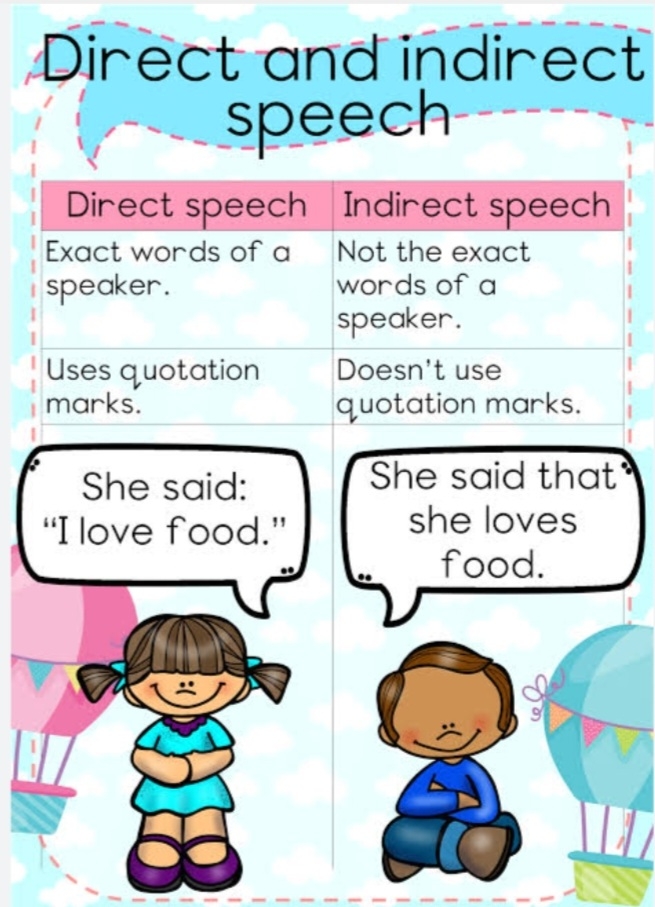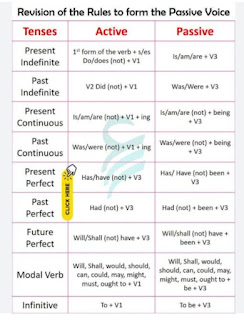Hello, I am Himanshi Parmar. This blog I have written as a part of teaching. The blog was written to provide study materials to my students. In this blog, i am going to discuss about Reported Speech (Direct speech and Indirect Speech). The blog includes following sub points -
- What is Reported Speech? /Meaning of Reported Speech.
- How Reported Speech Works / Process of converting direct into Indirect speech.
- Changes in Verb Forms in Reported Speech /Changes according to tenses.
- Reporting Verbs and Conjunctions
- Examples of Reported Speech
- Uses and Importance of Reported Speech
What is Reported Speech? /Meaning of Reported Speech.
Reported speech, also known as indirect speech, is a way of reporting or conveying what someone else said without quoting their exact words. Instead of using quotation marks as in direct speech, reported speech transforms the original statement into a new sentence structure. This is commonly used in both spoken and written English to relay conversations, thoughts, or statements made by others.Here's a detailed explanation of reported speech:
How Reported Speech Works /Process of converting direct into Indirect speech
1] Reporting Verb: Reported speech typically begins with a reporting verb such as "said," "told," "asked," "explained," etc. This verb introduces that someone is speaking or has spoken.
2] Change in Pronouns and Verb Tenses:
- Pronouns: Pronouns usually change according to the perspective of the speaker in reported speech. For example, "I" becomes "he/she," "we" becomes "they," and so on.
- Verb Tenses: The verb tenses may also shift depending on when the original statement was made relative to the reporting verb. This is called backshifting.
3]Punctuation: Reported speech is not enclosed in quotation marks like direct speech. Instead, it is integrated into the sentence structure and typically separated by punctuation, such as commas or conjunctions.
Changes in Verb Forms in Reported Speech /Changes according to tenses
Present Simple → Past Simple:
Direct Speech: She said, "I work in an office."
Reported Speech: She said that she worked in an office.
Present Continuous → Past Continuous:
Direct Speech: He said, "I am studying for my exam."
Reported Speech: He said that he was studying for his exam.
Present Perfect → Past Perfect:
Direct Speech: They said, "We have visited Paris."
Reported Speech: They said that they had visited Paris.
Past Simple → Past Perfect:
Direct Speech: She said, "I bought a new car."
Reported Speech: She said that she had bought a new car.
Can → Could:
Direct Speech: He said, "I can swim."
Reported Speech: He said that he could swim.
Reporting Verbs and Conjunctions:
- Reporting Verbs: These verbs indicate the act of reporting and are essential in introducing reported speech. Examples include "said," "told," "asked," "explained," "stated," "mentioned," etc.
- Conjunctions: Conjunctions such as "that," "if," or "whether" are often used to introduce reported speech, especially when the reported speech is a statement or a question.
Examples of Reported Speech
Direct Speech: "I will come to the party," she said.
Reported Speech: She said that she would come to the party.
Direct Speech: "They are watching a movie," he told me.
Reported Speech: He told me that they were watching a movie.
Direct Speech: "Have you finished your homework?" she asked.
Reported Speech: She asked if I had finished my homework.
Uses and Importance of Reported Speech
1] Conveying Conversations: Reported speech allows us to summarize conversations or relay what someone else said in our own words.
2] Maintaining Formality: In formal writing or reporting, using reported speech instead of direct quotes can maintain a professional tone.
3] Avoiding Repetition: When recounting a conversation, reported speech helps avoid repeating long passages of direct speech.
4] Narrative Writing: In storytelling or narratives, reported speech is commonly used to describe dialogues between characters.
5] Backshifting for Accuracy: Backshifting verb tenses in reported speech ensures accuracy in conveying when the original statement was made relative to the reporting.
In conclusion, reported speech is a fundamental aspect of English grammar used to report what others have said. Understanding how to transform direct speech into reported speech is essential for effective communication and writing.
Click here to read my blog about Voices (Active Voice and Passive Voice)
I hope this blog is helpful to you. Happy learning!
References
https://images.app.goo.gl/hnuMLNgvW1Z4TexQ9






.png)


